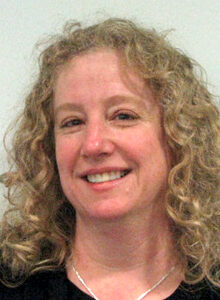1 in 5 U.S. children experiences a mental health condition, and suicide is now the second leading cause of death among young people. In New York City, we are facing an unprecedented youth mental health crisis, and the systems in place to address these needs are failing—especially for those from underserved communities. At the same time, the mental health workforce shortage leaves countless young people without access to the care they need. We can’t let this continue. It’s time to urgently act and provide young people with the tools and support they need to manage their mental health and access professional care.

Prevention is critical to ending the youth mental health crisis. The goal is not to wait until young people are in crisis but to give them the resources they need before they reach that point. That’s why NAMI-NYC has launched peer-led mental health programs for teens. Through our Teen Helpline, teens can ask any mental health questions, such as how to find a therapist. At our weekly virtual support group, Connection Corner, teens can share what’s on their minds and create community. Who is taking the lead here? Near peers, or young people close in age with lived experience, respond to those Helpline calls and facilitate the support group. As the program grows and matures, we will train teens with the tools and skills to take on this role – teens helping teens.
NAMI-NYC has decades of experience delivering evidence-based peer support programs. These include educational presentations, support groups, family mentoring, and our Helpline—all led by individuals who have lived experience with mental illness. Our team of Board members, staff, and volunteers have faced mental health challenges themselves or supported loved ones through their struggles. We know firsthand how effective peer support is in helping people manage their mental health.
The reality is this: young people are already seeking mental health guidance from their peers, not from adults or traditional mental health professionals. This can either continue unchecked, or we can bring our peer support expertise to meet their needs. NAMI-NYC has the resources to recruit, train, and support youth leaders who will guide their peers to wellness and self-advocacy.
Peer support is not the same as therapy. While Cognitive Behavioral Therapy (CBT) and Dialectical Behavior Therapy (DBT) are invaluable tools for managing mental health, peer support offers something different. Peer support is built on shared lived experience, where young people can speak openly about their struggles and feel understood by someone who truly “gets it.” For all the behavioral health professionals, teachers, guidance counselors, and anyone who works with teens: peer support complements therapy—it does not replace it. It’s a critical layer of care that can bridge the gap until young people can access professional services. And unlike self-diagnosis or misinformation on social media, peer support provides accurate, empathetic, and trusted guidance.
Near-peer volunteers facilitate spaces where young people can share their stories, navigate the mental health system, and advocate for themselves and each other. This isn’t just a stopgap—it’s an essential service that empowers young people to help themselves and change the mental health system for the better. We must seize this opportunity to train and equip young leaders to support their peers and prevent future harm.
Our young people, especially Gen Z, have faced a world of trauma—climate change, school shootings, global unrest, and a pandemic that robbed many of them of important milestones. But despite these challenges, Gen Z is resilient, compassionate, and ready to make a difference. They have the power to transform the mental health landscape, but they need our support to do so.
That’s why we need your help connecting teens to these peer-based programs. When you refer a young person to our Teen Helpline, we prevent teens from suffering in silence. When properly trained, teens can handle difficult conversations and situations – and they will reap the rewards. Teens deserve support, community, and wellness.
Have your young person, student, client, or patient call NAMI-NYC’s Teen Helpline, and let’s end this youth mental health crisis now.
Marilyn Jacob is the Youth Mental Health Director at NAMI-NYC. The National Alliance on Mental Illness of New York City has been helping families and individuals affected by mental health challenges for over 40 years. Learn more at: www.naminyc.org/helpline.





